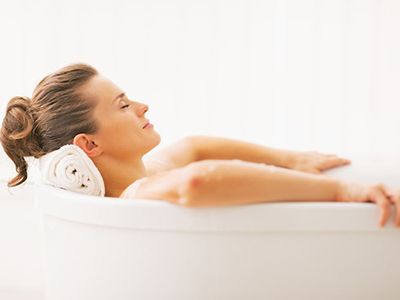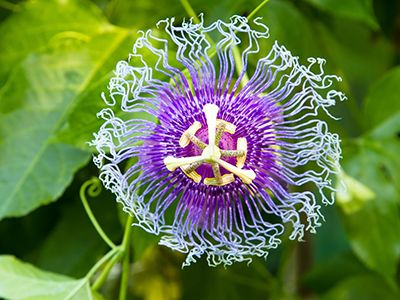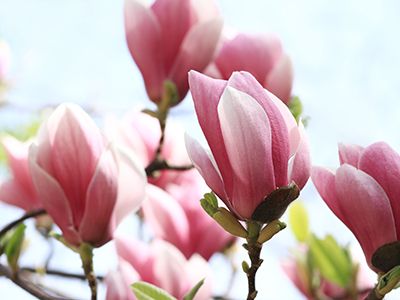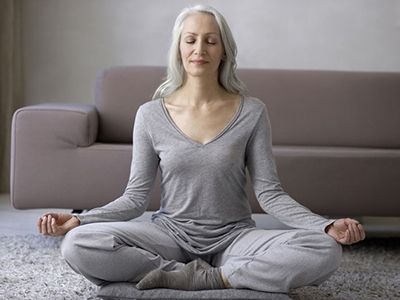Dr. Su's Blog
Tools for Supporting Healthy Sleep
In my last blog I discussed some of the hazards of not getting enough sleep. Now let’s look at natural options for improving sleep quality.

When I look online for ideas that enhance sleep, I frequently see recommendations such as turning off electronics one hour before bed, no TV in the bedroom, a warm cup of tea, prayer, and a relaxing bath. Yes, we should all be doing these practices as a way to wind down at the end of the day! And for many people who are not sleeping enough, these mindful sleep hygiene practices are a good way to get out of the addictive tendency to “just do one more thing before bed”. However, people with insomnia usually need stronger tools.
Falling asleep and staying asleep, and then waking refreshed, are all part of our inherent circadian rhythms. While some people are early risers and others are night owls, most of us fall in the middle somewhere. Any of those patterns can be healthy as long as we are getting enough sleep (which studies show is approximately 7.5 hours a night). So, it’s okay to be a night owl if you do not have early morning obligations that cut your sleep short. Circadian rhythm is impacted by many things, including getting morning sun in your eyes or using a lightbox to achieve the same effect. In addition, turning off lights at night and sleeping in a totally dark room enhances this natural cycle. Our natural melatonin is only produced in total darkness (where you cannot see any objects in the room or your hand 6 inches away from your face).
Another strong determinant of our ability to fall into a deep sleep is our cortisol rhythm. Cortisol is produced in the adrenal glands as part of the system that regulates our energy. A healthy pattern of cortisol is one that rises in the morning with the sun and acts as our “get-up-and-go”, and then slowly decreases throughout the day until it reaches a low point during the night so we can rest and rejuvenate. The optimal way to assess cortisol levels is through a saliva test (frequently called an Adrenal Stress Index Test, or ASI) that looks at four samples throughout the day to give you a picture of the cortisol pattern. What I commonly see when people have insomnia is that nighttime levels are not dropping as they should and therefore the cortisol is keeping people awake. Often their morning cortisol is low, so waking up is difficult and they have poor energy throughout the day. Another common pattern is flat-lined low across the whole day. Cortisol is needed to keep blood-sugar balanced as we sleep, so when someone is deeply deficient, they may dip into hypoglycemia during the night, then use adrenaline to stimulate sugar release from the liver. That adrenaline pops them into wakefulness.
Natural medicine is great at rebalancing cortisol levels!
Let’s start by looking at some well-known sleep herbs:

Passionflower (Passiflora incarnata)
As beautiful as it is useful, Passionflower is gently calming and antispasmodic. When the mind gets stuck in a repetitive-thought pattern, Passionflower can quiet a tendency toward rumination. Its antispasmodic qualities temper muscular restlessness that can prevent sleep. This herb is great in cases of over-work and over-worry.
Passionflower’s pharmacological action has been shown to be due to its modulation of the neurotransmitter GABA (gamma-aminobutyric acid), our only inhibitory neurotransmitter, which blocks the anxiety-producing neurotransmitter glutamate. Increased GABA leads to a decreased firing of the nervous system, and therefore greater calm. Passionflower enhances GABA activity while not affecting the GABA receptors that are affected by benzodiazepene drugs, meaning that passionflower likely does not have addiction potential. (1)
Skullcap (Scutellaria lateriflora)
Skullcap is very gentle and has very similar indications. It is frequently used for restlessness and nervous irritability. The combination of Skullcap with Passionflower and Milky Oat seed makes a nourishing, restorative nervous system tonic.
Kava (Piper methysticum)
Kava is an herb that has been used in the South Pacific Islands for over 3000 years. Many studies have shown Kava to have anxiolytic (anxiety-busting) qualities and simultaneously functions as an antidepressant. This provides a great solution to a common issue -- it is calming while not depressing and uplifting to a depression but not anxiety-producing. Anxiety and depression can also be hard on libido and sexual desire. Interestingly, Kava has been shown to have a side-benefit of increasing female sex drive and function. (2) One note about kava: high-quality kava poses no toxicity. Multiple studies have proven its safety when properly sourced. (3,4,5)
Valerian (Valeriana officianalis)
While Valerian is a popular ingredient in herbal supplements targeting sleep, it has some quirks. Some people report that it is helpful, while others find it does not help, or worse, they have a “paradoxical reaction” and find it makes them more wakeful. Indeed, like many of our herbal remedies in the day of mass marketing (hello St. John’s Wort and echinacea!), Valerian’s activity has been misunderstood. The old King’s American Dispensatory from 1898 states “valerian excites the cerebro-spinal system.” How does an excitatory herb help some people sleep? King’s goes on to state, “the cases requiring it are those evidencing enfeebled cerebral circulation.” And indeed, in practice I find it works best in those who are a little blood deficient or anemic, or have poor circulation to the extremities. In these cases the valerian enhances blood flow to the brain, which allows it to relax and fall into sleep.
There are so many beautiful herbs that support the nervous system, each with unique characteristics. A few others include:
Jujube (Zizyphus jujuba)
Lead herb in the Chinese formula Suan Zao Ren Tang, Jujube is used to treat insomnia due to overwork and over-fatigue when the body cannot hold and contain the yin and yang in balance.

Magnolia (Magnolia grandiflora)
Traditionally used in Chinese medicine to treat a stagnant and bloaty GI, Magnolia also addresses digestive issues caused by stress, has anti-anxiety qualities, and lowers elevated cortisol.
Lastly, CBD! (Cannabidiol)
Well on its way to becoming the state flower here in Oregon, CBD is the non-psychoactive component in hemp and users often report a positive effect of sleep onset and sleep duration. A large review of the PubMed database that just reported in May of this year showed that sleep was rarely the main criteria of a study (usually the studies looked at pain, PTSD, epilepsy, and MS), but they were able to infer positive benefits to sleep in those studies (6). My patients have had mixed experiences when trying to use CBD as the sole sleep agent. Most commonly, if they are not opposed, I will recommend getting a product that contains at least a 4:1 CBD:THC ratio, and for some people as high as a 1:1. This has produced better results but the dose has to be individually titrated to avoid morning grogginess.
Nutrients for Supporting Sleep
Phosphatidylserine
This phospholipid normalizes stress-induced hyperactivity of our hypothalamic-pituitary-adrenal axis (HPA axis). (7) The HPA axis is a communication system between our brain and adrenal glands to maintain cortisol balance in the body. During chronic stress, initially the system will go into overdrive and secrete high levels to cortisol to help us meet the challenge. But if we continue to over-draw on our cortisol “gas tank”, we will find ourselves depleted and “running on empty”. This is another interesting set of results that can be gathered from the ASI test discussed earlier.
Phosphatidylserine acts in the initial phase, when cortisol levels are high. It is best taken when cortisol levels are at their highest. For example, are you waking up into a stress state because of job-pressures? Take it in the morning to prevent anxiety and increased stress. Are you waking up at night due to high cortisol levels? Take it before bed to “sponge” up that extra cortisol and allow you to sleep.
GABA
With the goal of trying to increase calming GABA, why not just take some directly? It has long been said that orally-supplemented GABA does not cross the blood-brain barrier. However, there is some compelling data to show that it does. In one small study of 13 volunteers, researchers evaluated 3 tests on each volunteer, asking them to have plain water, L-theanine, or GABA before obtaining electroencephalograms (EEGs) of their brain waves. Only following GABA ingestion did the volunteer’s brains show enhanced alpha waves (calming) vs. beta waves (excitatory) (8). Generally, the data on this question is pretty sparse so it falls into the “if-it-works-for-you” category. There are some liposomal formulations which claim to optimize absorption.
Putting It All Together
A sleepless night can be frustrating since there is no magic bullet for sleep. Most of us do best with an individualized program that’s been tailored to address our specific issues. Usually my patients are on a program that has multiple components. These include:

Make sure your computer and phone are set to Night-Lighting mode, which takes some of the wakeful blue light out of the light spectrum hitting your eyes. I like the program f.lux for my computer (it makes the color of your computer's display adapt to the time of day, warm at night and like sunlight during the day).
Turn off the computer/TV/phone at least 1 hour before bed. YES! Really do this! And switch to a less brain-stimulating activity such as reading, stretching, or a warm shower/bath. If you have muscle-soreness, add 2-4 cups of Epsom salts to your bath, or take some highly-absorbable magnesium.
For supplements, you might consider some melatonin, an herbal sleep support with the ingredients listed above, and some CBD.
If your cortisol is spiking in the middle of the night, add some Phosphatidylserine and maybe a protein snack before bed. If this is the situation, I don’t think sleep can truly improve until daytime stress is addressed. I sometimes joke that preparing for sleep starts first thing in the morning. If you are waking up stressed and fatigued and have a couple of cups of caffeine, that is just worsening the cortisol depletion and unbalanced nervous system over time.
I also recommend that patients add some Passionflower and Skullcap tinctures to a small glass of water before they go to bed and leave it in the bathroom or bedside table. That way when they wake in the middle of the night, their drink is ready to go and they can quell the middle-of-the-night brain chatter.
I also like to do a full Chinese medicine evaluation because many times it turns up a picture that can be addressed through a Chinese herbal formula better than through using single herbs. And of course, many people find acupuncture restorative and calming.
If pain or hormonal changes are part of the issue, those will need to be addressed as well.
I hope some of these ideas lead you to a better night’s sleep and therefore better health in all aspects of your life. Goodnight!
1. Judith Gibbert, Fabian Kreimendahl, Jennifer Lebert, Reinhard Rychlik, Inga Trompetter Improvement of Stress Resistance and Quality of Life of Adults with Nervous Restlessness after Treatment with a Passionflower Dry Extract. Complement Med. Res. 2017;24(2):83-89. doi: 10.1159/000464342. Epub 2017 Apr 12.
2. Sarris J, Stough C, Teschke R, Wahid ZT, Bousman CA, Murray G, Savage KM, Mouatt P, Ng C, Schweitzer I. Kava for the treatment of generalized anxiety disorder RCT: analysis of adverse reactions, liver function, addiction, and sexual effects. Phytother Res. 2013 Nov;27(11):1723-8. doi: 10.1002/ptr.4916. Epub 2013 Jan 24.
3. Teschke R, Sarris J, Glass X, Schulze J. Kava, the anxiolytic herb: back to basics to prevent liver injury? Br J Clin Pharmacol. 2011 Mar;71(3):445-8. doi: 10.1111/j.1365-2125.2010.03775.x.
4. Teschke R, Sarris J, Lebot V Kava hepatotoxicity solution: A six-point plan for new kava standardization. Phytomedicine. 2011 Jan 15;18(2-3):96-103. Epub 2010 Nov 26.
5. Sarris J, Stough C, Bousman CA, Wahid ZT, Murray G, Teschke R, Savage KM, Dowell A, Ng C, Schweitzer I. Kava in the treatment of generalized anxiety disorder: a double-blind, randomized, placebo-controlled study. J Clin Psychopharmacol. 2013 Oct;33(5):643-8. doi: 10.1097/JCP.0b013e318291be67.
6. Kuhathasan N, Dufort A, MacKillop J, Gottschalk R, Minuzzi L, Frey BN. The use of cannabinoids for sleep: A critical review on clinical trials. Exp Clin Psychopharmacol. 2019 May 23. doi: 10.1037/pha0000285.
7. Hellhammer J, Vogt D, Franz N, Freitas U, Rutenberg D. A soy-based phosphatidylserine/ phosphatidic acid complex (PAS) normalizes the stress reactivity of hypothalamus-pituitary-adrenal-axis in chronically stressed male subjects: a randomized, placebo-controlled study. Lipids Health Dis. 2014 Jul 31;13:121. doi: 10.1186/1476-511X-13-121.
8. Abdou AM, Higashiguchi S, Horie K, Kim M, Hatta H, Yokogoshi H. Relaxation and immunity enhancement effects of gamma-aminobutyric acid (GABA) administration in humans. Biofactors. 2006;26(3):201-8
Join the Mederi Center community by signing up for our email list! We send several emails a month with product promotions for patients, practical tips for healthy living, blogs written by our practitioners, information about events, and other news. You can unsubscribe at any time.

Meet Dr. Su!
Dr. Susan Saccomanno, ND, LAc is a contributing writer to the Mederi Blog and a practitioner at the Mederi Center Clinic in Ashland, Oregon. She has over a decade of experience as a family physician with a specialty in holistic cancer care and chronic illness. Dr. Su has been practicing at the Mederi Center since 2014, where she blends the best of naturopathic and Chinese traditions.
Dr. Su became a doctor out of her passion for helping people achieve vibrant health. She received her Naturopathic Doctorate and Master of Oriental Medicine degrees from National College of Natural Medicine, and extended her studies in integrative cancer care in the Eclectic Triphasic Medical System (ETMS), founded and taught by Donnie Yance.


